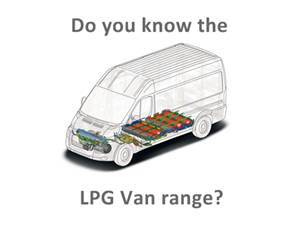
List of mercedes-benz models with propane for sale
The history of Mercedes-Benz includes more than a century of constant innovation in the face of adversity. Produced by Daimler AG, the name Mercedes has seen some of the darkest moments in European history, followed by some of the most innovative years in science and technology.
Daimler-Benz has undergone many changes over the past century. Since 2007, the company is known as Daimler AG. The company persevered in adversity and trusted its vision for business and its long history of innovation. Today, Mercedes-Benz continues to be known throughout the world for its incredible engineering and supreme luxury.
The range of cars with propane offered by the mercedes-benz brand in USA has been extended with the approval of equipment to retrofit their cars:
A new mercedes-benz LPG / Propane Model of van in USA usually maintains the same gasoline system as the traditional version incorporating the LPG / Propane equipment
the mercedes-benz LPG / Propane van has a price slightly higher than the gasoline version but lower than the diesel version
Although it can be established that operating in LPG / Propane mode the vehicle consumes a little more than gasoline, the price of fuel has an interesting saving
The refilling from the supplier is carried out in a time comparable to that necessary for refueling gasoline. The system is, likewise, very simple and comfortable.
Being a cleaner system, catalytic converters, filters, "adblues" are eliminated, which reduces the possibility of mechanical breakdowns. Thus, for example, the service life of the oil increases with what it means for motor care
The first cities begin to limit the access of diesel vehicles, in their restrictive regulations vehicles with LPG have access advantages
Webmaster´s Comment
Indicates that the model has a guarantee / insurance from the manufacturer or importer
Indicates that the model is adaptable to consume Propane and has warranty / insurance from the equipment installer
Indicates that the model is offered with guarantee / insurance from the manufacturer or importer in the indicated country
By 2030 in the European Union, the transport of goods by road will increase by 75%. This would imply an increase in pollution due to CO2 emissions. To avoid this, many formulas are being studied, such as the savings and efficiency systems of many vehicles, electric motors and hybrids. Mercedes-Benz continues to investigate and after the presentation of new technologies for the Sprinter engines (Blue Efficiency and NGT), it returns to market the engines with different "ecological styles". This is the Eco-Gas Sprinter. The option for diesel engines, currently available, is the propulsion by liquefied petroleum gas or LPG. The current Mercedes-Benz Sprinter Eco-Gas is equipped with a gasoline engine with double fuel LPG. Therefore, with this fuel, the gases emitted do not contain practically solid particles and do not contaminate as much as in a conventional diesel engine. Another advantage is the low noise it produces during operation. In terms of performance, it hardly loses points compared to conventional gasoline or diesel engines and can be installed in all versions of the range, with a maximum mass of 3,500 kg and 5,000 kg.
The operation of the engine with LPG is similar to that of gasoline: the different engine components are adapted by electronic management, which guarantees optimum performance in both modes of operation (gas or gasoline). The gas in liquid state, leaves the tank and is directed towards the engine by a pressure pipe, which passes through a solenoid valve that allows the passage of this fuel only with the engine running and the switch in the gas position . From there, it reaches the heat exchanger between the gas and water circuit of the engine, passing the gas from the liquid to the gas, reducing the pressure and regulating the amount of gas to be injected into the engine by means of an electronic control unit. A switch located on the control panel allows the driver to select the operating mode of the engine (gasoline / LPG). The engine always starts in gasoline mode and once the optimum operating temperature is reached, it automatically switches to gas mode. A pilot tells us how we operate the engine by means of a light indicator, the level of LPG reserve. When one of the fuels is completed, the system automatically switches to the appropriate mode. A clear example of the utility of this Sprinter Eco-Gas is the collaboration agreement signed by the companies Seur, Repsol and Mercedes-Benz, through which the emergency transport vehicles of the courier company will be propelled for this gas gas.



 POSSIBILITY OF BEING ADAPTED TO CONSUME PROPANE
POSSIBILITY OF BEING ADAPTED TO CONSUME PROPANE







